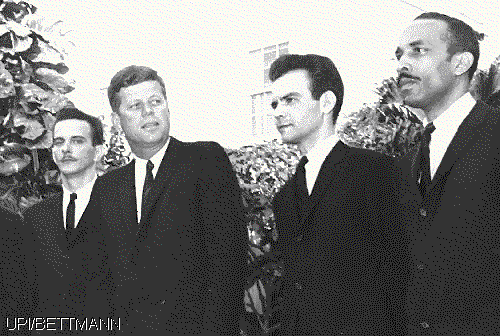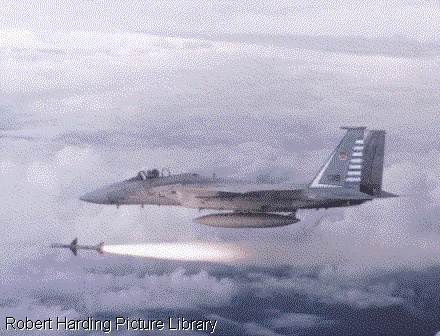
Cuba

Thomas Jefferson described Cuba as "a fruit that will soon fall into our hands." His prophesy began to come true in the 1860s. The U.S. was already Cuba's most important market and source of imports, especially food. After civil war cut the northern states off from the southern states' sugar the U.S. imported 80% of Cuba's sugar harvest. In 1868 Cuba's first war of independence began under José Martí, the father of Cuban nationalism. During this war and the second one led by Antonio Maceo, American mercenaries paid by U.S. sugar importers guarded sugar mills and other assets. By the time the U.S. entered the war in 1890 the rebels were winning, Antonio Maceo had refused to make any settlement short of complete independence, and U.S. interest owned most of Cuba's sugar industry. The U.S. military occupation sold the prime sugar lands to these interests for pennies an acre.
The new Republic of Cuba was required by the U.S. Congress to add the Platte Amendment to their constitution in order to end the U.S. occupation. The amendment gave the U.S. unlimited rights to establish military and naval bases in Cuba and to invade Cuba for the purpose of "restoring order." Economic value aside, Cuba was an important asset for countering the naval presence of Britain, the United States' rival for domination of Latin America. The United States repeatedly invaded Cuba to keep it safe for U.S. property and Washington supported dictators who did that work for them. The last of these "puppet dictators" was Fulgencio Batista who led the military coup of 1952.
Batista formed a partnership with the Mafia. Ciudad La Habana became a base for narcotics trafficing, money laundering, and crime. The Eisenhower administration gave Batista what help they could against rebel leader Fidel Castro. By the 1950s U.S. corporations owned 80% of Cuba's land, most of the sugar industry, and all of the public utilities, oil refining, nickel industry and railroads.
![]() When the
revolution led by Fidel Castro triumphed in December 1959 the attitude of
Washington was to wait and see if the new government in power was one that they
could control as easily as the previous governemnts. Then in 1960 the
Castro junta passed the Urban Reform Law limiting the amount of urban real
estate that any natural person or corporation could hold. Assets above the limit
were nationalized. Then came the Rural Reform Law limiting the amount of farm
land an individual or corporation could own. Castro's own family lost land.
Cuban elites including most physicians and other learned professionals turned
against the revolution and left for Florida. Washington cut off Cuba's oil,
their only fuel, and prevented Cuba from obtaining oil elsewhere except the
Soviet Union. When Standard Oil refused to refine Soviet crude, Castro
nationalized their refineries. But Washington did not break trade relations with
Cuba.
When the
revolution led by Fidel Castro triumphed in December 1959 the attitude of
Washington was to wait and see if the new government in power was one that they
could control as easily as the previous governemnts. Then in 1960 the
Castro junta passed the Urban Reform Law limiting the amount of urban real
estate that any natural person or corporation could hold. Assets above the limit
were nationalized. Then came the Rural Reform Law limiting the amount of farm
land an individual or corporation could own. Castro's own family lost land.
Cuban elites including most physicians and other learned professionals turned
against the revolution and left for Florida. Washington cut off Cuba's oil,
their only fuel, and prevented Cuba from obtaining oil elsewhere except the
Soviet Union. When Standard Oil refused to refine Soviet crude, Castro
nationalized their refineries. But Washington did not break trade relations with
Cuba.
Then came the Bay of Pigs Invasion. This was an unsuccessful attempt in 1961 to overthrow the government of the Cuban premier Fidel Castro by United States-backed Cuban exiles. Increasing friction between the U.S. and Castro's leftist regime led President Dwight D. Eisenhower to break off diplomatic relations with Cuba in January 1961. Even before that, however, the Central Intelligence Agency had been training antirevolutionary Cuban exiles for a possible invasion of the island.
 The
invasion plan was approved by Eisenhower's successor, John F. Kennedy. On April
17 about 1300 exiles, armed with U.S. weapons, were landed at the Bahía de
Cochinos (Bay of Pigs) on the south coast of Cuba. Hoping to find support from
the local population, they intended to cross the island to Havana, but were
quickly stopped by Castro's army. By the time the fighting ended on April 19, 90
men had been killed and the rest were prisoners.
The
invasion plan was approved by Eisenhower's successor, John F. Kennedy. On April
17 about 1300 exiles, armed with U.S. weapons, were landed at the Bahía de
Cochinos (Bay of Pigs) on the south coast of Cuba. Hoping to find support from
the local population, they intended to cross the island to Havana, but were
quickly stopped by Castro's army. By the time the fighting ended on April 19, 90
men had been killed and the rest were prisoners.
The failure of the invasion seriously embarrassed the Kennedy administration, which was blamed by some for not giving it adequate support and by others for allowing it to take place at all. Private groups in the U.S later ransomed the captured exiles. Then came the Cuban Missile Crisis. The Cuban Missle immediately after the failure of the Bay of Pigs invasion.
The Cuban Missile
Crisis was a major confrontation between the United States and the Union of
Soviet Socialist Republics (USSR) over Soviet-supplied missile installations in
Cuba, regarded by many as the world's closest approach to nuclear war. In 1960
Soviet Premier Nikita Khrushchev launched plans to supply Cuba with medium- and
intermediate-range ballistic missiles that would put the eastern United States
within range of nuclear missile attack. Khrushchev mistakenly assumed that the
United States would take no action and when questioned denied that any missiles
were being supplied to Cuba. By the summer of 1962, U.S. spy planes flying over
Cuba had photographed Soviet-managed construction work and spotted the first
ballistic missile on October 14.
U.S. president John F. Kennedy consultated secretly with advisers, discussing options: invasion, air strikes, a blockade, or diplomacy. On October 22, Kennedy announced a naval blockade to prevent the arrival of more missiles. He demanded that the USSR dismantle and remove the weapons and declared a quarantine zone around Cuba, within which U.S. naval forces would intercept and inspect ships to determine whether they were carrying weapons. Other members of the Organization of American States supported the United States.
For several tense days Soviet vessels en route to Cuba avoided the quarantine zone, and Khrushchev and Kennedy communicated through diplomatic channels. Khrushchev wavered in his position, sending a message on October 26 in which he agreed to Kennedy's demands to remove all missiles, and then the following day he tried to negotiate other terms. Kennedy responded to the first communication, and on October 28, Khrushchev agreed to dismantle and remove the weapons from Cuba and offered the United States on-site inspection in return for a guarantee not to invade Cuba. Kennedy accepted and halted the blockade. Cuba, angry at Soviet submission, refused to permit the promised inspection, but U.S. aerial reconnaissance revealed that the missile bases were being disassembled. The apparent capitulation of the USSR in the standoff was instrumental in Khrushchev's being deposed in 1964.
Part of the settlement to the Cuban Missile Crisis of 1962 was Kennedy's pledge that U.S. forces would not invade Cuba. Instead there was a CIA dirty war using crop, livestock and human disease. Fields were burnt, assets were destroyed and people were murdered. But the economic blockade was the greater impediment to development costing Cuba $60 billion by 1989.